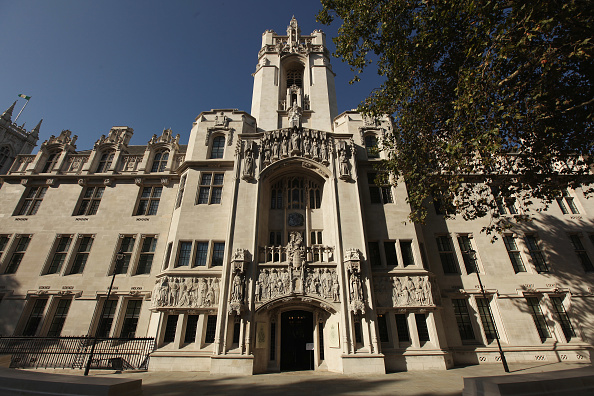Supreme Court rules suspects have the right not to be named in criminal investigations in a ‘severe blow’ to the media

The Supreme Court has ruled that suspects in a criminal investigation have the right not to be named by the press until charges are brought in a “severe blow” to the media’s role as the eyes and ears of the public
It comes after Bloomberg lodged an appeal to the court after an unnamed businessman, or ZXC as he is referred to, and his employer were being investigated by a law enforcement agency.
Bloomberg obtained a confidential letter from the UK agency written to a foreign state asking for information and documents about the businessman; the publication subsequently posted an article naming the man and details about the investigation.
This was met with a lawsuit from the businessman for the misuse of private information, with the High Court and Court of Appeal both finding that Bloomberg had breached his Article 8 rights under the European Convention of Human Rights.
He was also granted an injunction and damages of £25,000.
In essence, the courts agreed that a person has ‘a reasonable and objectively founded expectation of privacy’ about the fact of the investigation
The crux of Bloomberg’s appeal was that this was inconsistent with previous rulings on the public’s understanding of the presumption of innocence.
Nonetheless, the Supreme Court dismissed the appeal this morning and said that a person under criminal investigation had a reasonable expectation of privacy because of the potential impact on their reputation and private life.
In the ruling, Lord Nicholas Hamblen and Lord Ben Stephens, said: “In this context, the question is how others, including a person’s inner circle, their business or professional associates and the general public, will react to the publication of information that that person is under criminal investigation”.
“For some time, judges have voiced concerns as to the negative effect on an innocent person’s reputation of the publication that he or she is being investigated by the police or an organ of the state.”
“It is widely accepted as a matter of public policy that there is a negative effect on an innocent person’s reputation in publishing that he or she is being investigated by the police or another state organisation,” the justices concluded.
A Bloomberg News spokesperson commented on the decision: “We are disappointed by the Court’s decision, which we believe prevents journalists from doing one of the most essential aspects of their job: putting the conduct of companies and individuals under appropriate scrutiny and protecting the public from possible misconduct.”
Ramifications
Matthew Dando, partner at Wiggin LLP, commented on the ruling: “This decision deals a severe blow to the media’s ability to report on investigations and arrests made by the police and other public authorities.”
“It is chilling that in a modern democracy there is now a general expectation of privacy in the fact of an investigation by the state. The decision tips the scales too heavily in favour of the suppression of information at a time when the media’s role as the eyes and ears of the public has never been more important.”
He added that the court’s rationale that a privacy right is warranted because of the stigma that an investigation brings “blurs the lines between privacy and defamation”.
Looking forward, he warned that this would have a significant impact on the way the media can defend defamation claims.
“With each encroachment on editorial discretion comes inevitable self-censorship as editors take decisions mindful of being second guessed by the courts in subsequent litigation, all of which means they will be more selective on what they print and the British public will be less well informed”, he concluded.
However, David Corker, Partner at criminal law firm Corker Binning, was less scathing of the judgment and said:“Today’s Supreme Court judgment is a resounding success for the privacy and reputation of those who are the subject of a criminal investigation. No more can the police leak and the media publicise information about what the police merely suspect the individual has done.”
“The insidious process of destroying an individual’s name who may never face prosecution for lack of evidence is greatly curtailed.”